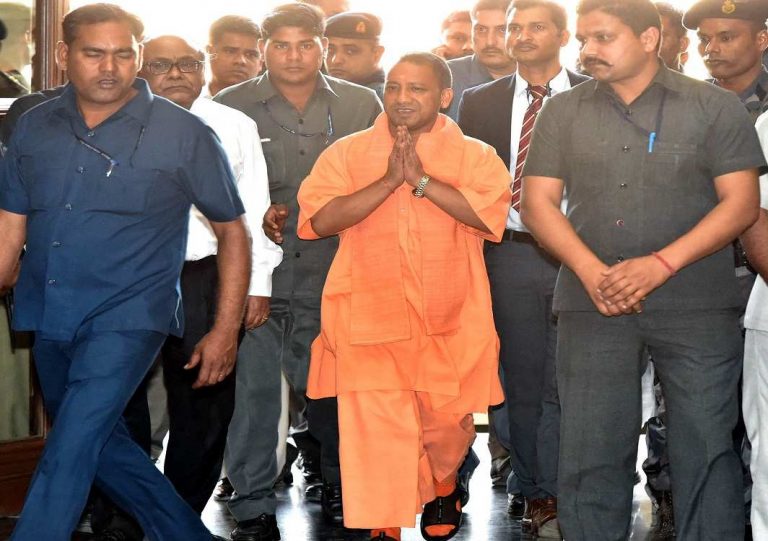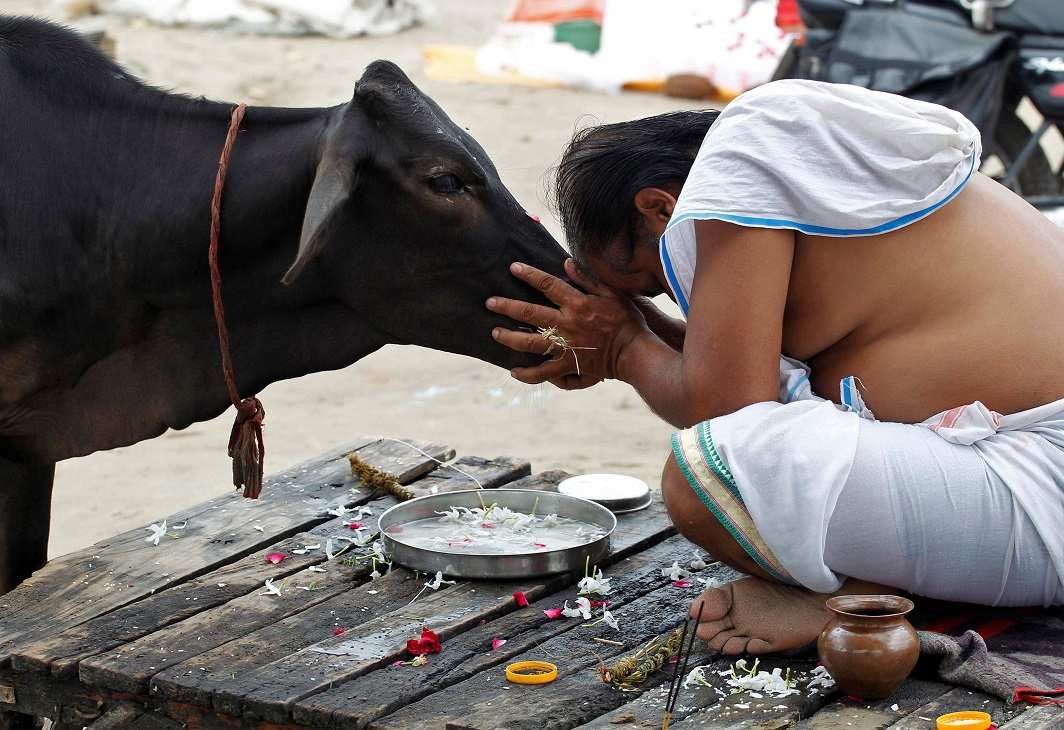
The problem of slaughterhouses was simmering long before the new government acted peremptorily in the matter. Now that it has dirtied its hands, it will have to do the clean-up
~By Parsa Venkateshwar Rao Jr
When Yogi Adityanath took over as chief minister of UP a week ago, the first thing he did was to close down slaughterhouses without licences. The situation that emerged was that overnight all meat shops were forced to down shutters across the state. This was due to two reasons. As the slaughterhouses were closed, the small shops could not get their supply of meat. And the shops which were both slaughterhouses and meat sellers had to close any way.
There was however no written order from the new government. District magistrates of all the 75 districts told their subordinates that the butchers’ outlets should be closed. The oral directive travelled down the hierarchy, and inspectors and constables went to the shops and had them closed.
The irony is that there has not been a proper licensing system as such in the state. The sanitary and food inspector from the municipality would go round and collect a charge, giving a receipt in return. When the shopkeepers showed the receipts to the police, they were told that this was not a licence. As the out-of-business meat sellers milled around the district magistrate’s office, the lower-ranking officials told them to re-open their shops and sell chicken quietly. But the shopkeepers are still hesitant. They are apprehensive that they might face trouble on one count or the other.
It is a coincidence that it is the time of Navratri, where the meat sales go down by as much as 75 per cent, indicating that Hindus, who are majority of the consumers, abstain during the nine days. But for most poor Muslim families, meat is their staple. And that too, buffalo meat. It is Rs 250 a kg compared to mutton which sells at double the price. The family cooks the buffalo meat, and they make rice or roti and the meal is done. And it feeds a family. Now, they have been left high and dry. Well-off Muslim families can afford to buy mutton at higher prices and they are not affected.
But the problem of slaughterhouses was simmering much before the dramatic victory of the BJP in the assembly elections on March 11. For instance, there has been a clash between the Lucknow Nagar Nigam and the Uttar Pradesh Pollution Control Board in the case of a slaughterhouse at Motijheel in the state capital.

Mohd Ayaz Qureshi, whose family owns an established slaughterhouse in Lucknow, traces the story back to 2014 when Lucknow municipality refused to renew the annual licence. The reason was that the municipality had failed to adhere to Section 33A of the Water (Prevention And Control of Pollution Act) 1974 and it had to close the slaughterhouse on the basis of the pollution control board’s order of August 13, 2013. But it continued to function even as the owners paid bribes to the municipality.
A Public Interest Litigation (PIL) writ petition was filed at the Lucknow Bench of the Allahabad High Court. In their order of March 11, 2015, Justices DY Chandrachud and Ranjan Roy issued a directive that the state administration and the board should see to it that the slaughterhouse did not function. They observed: “In the present case it is undisputed that the State Pollution Control Board has issued orders for closure under Section 33A of the Act on 22 August 2013. Despite this, it has been stated before the Court by the learned counsel appearing on behalf of the Lucknow Nagar Nigam that the Nagar Nigam is continuing with the activities of slaughtering in the slaughterhouse. This is nothing but a brazen violation of law by a local authority which is impermissible.”
The judges took note of the fact that the Supreme Court has been monitoring the issue of the slaughterhouses in Uttar Pradesh in Laxmi Narain Modi vs the Union of India of 2003. In its order of August 23, 2012, the court took note of the decision of April 26, 2012 of the Union Ministry of Environment and Forests that “required the State Governments to constitute State Committees for slaughterhouses to oversee modernisation, relocation of slaughterhouses which are located within or in close proximity of residential areas and to recommend appropriate measures for dealing with solid waste and pollutants.”
Qureshi says that the Lucknow municipality has no marked slaughterhouse area as mandated. His family has modernised its slaughter-house facility by spending more Rs 25 lakh to Rs 40 lakh. In effect, the authorities in UP have no clear guidelines with regard to slaughter-houses and meatshops in the state. The butchers are at the mercy of the local authorities’ whims.
Iftikhar Hasan of Meem Agro Foods, which has a slaughter house in Shamli in Uttar Pradesh and which is engaged only in exports, explains that the meat shops come under the purview of the municipalities and the slaughterhouses fall in the jurisdiction of the Food Safety and Drugs Administration Authority. The big slaughterhouses do not face a problem because they operate with the required licences. The problem arises with the local meat shops, many of which do not always have a licence. Hasan says that the state government is not after the meat business as such but there is suspicion about cows being killed and their meat being sold.
It is clear that the Adityanath government did not create the slaughterhouse controversy. It was given to the new government on a platter, and the chief minister had given it the right political spin. It burnishes the image of the saffron-clad chief minister as the representative of Hindu orthodoxy. But the dramatic thrill is indeed momentary. It also poses a challenge to the state government and the local authorities. They would have to find alternative sites for the slaughterhouses and create the necessary infrastructure. The livelihoods of thousands of people need to be sustained, and the food needs of millions catered to. The government would have to focus on the meaty issue than it would want to.
Or will it be the case that once the Navratri ends, the authorities would let the mess of slaughterhouses be?

